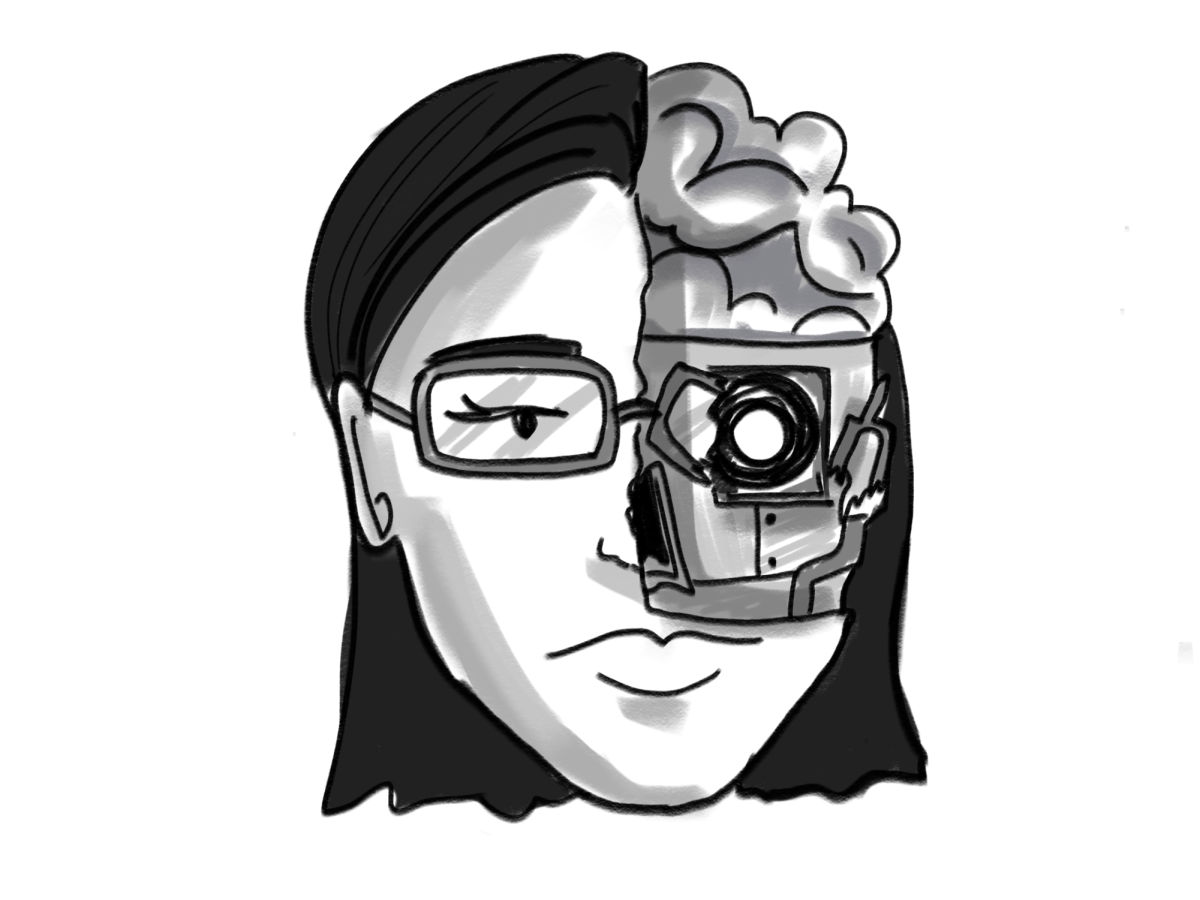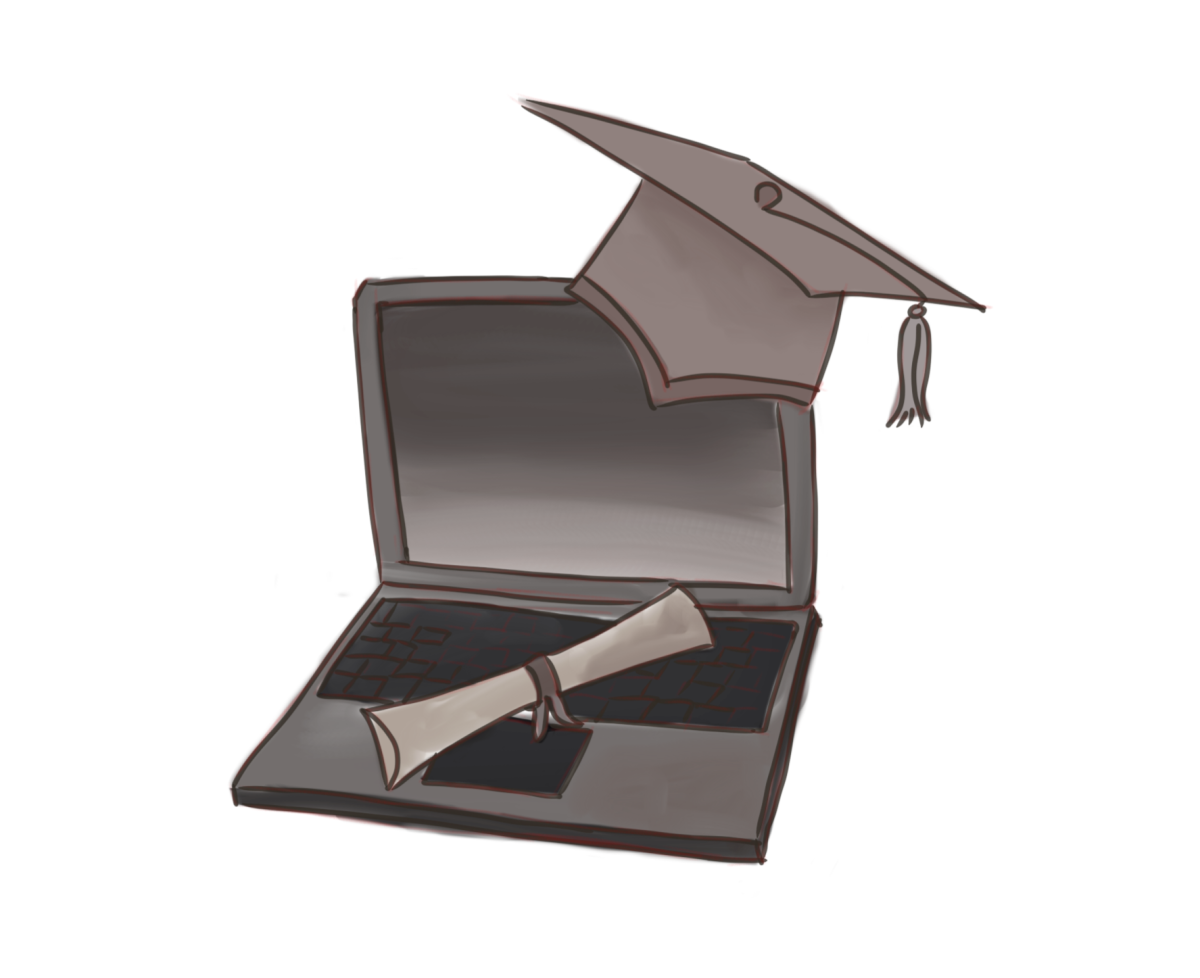“Rules for thee, and not for me” seems to be the unspoken motto of many educators, birthing an epidemic of academic duplicity. At CHS and beyond, students are warned against using AI to help guide them in writing assignments, yet many educators rely on the same technology to grade their students’ assignments. This poses a critical question: If AI is an unacceptable shortcut for learning, why is it an acceptable shortcut for teaching?
CHS English teacher Allison Evans was kind enough to sit down with me in a thorough interview to answer this exact question. In our interview, she discussed her own grading policy.
“A score is given based on an entered or provided rubric, and then there are comments that I can select [from CoGrader]. So, I’m looking at the rubric and the comments, and I’m making some decisions about what comments are best to choose. I’m not physically writing all those comments, but I’m selecting those comments because I believe those resemble a student’s writing, and what they need to hear from me.”
Evans is not alone with this new grading system, but it needs to be brought to light that there is a double standard in using this method of grading. Unfortunately, there was no conclusive research on the double standards of teachers regarding AI. Fortunately, I am not a quitter, and was able to conduct my own research. In an independent sample study of students surveyed on a Wolfpacket Instagram poll, 66% of students surveyed responded that their teachers actively use AI to grade work. If AI has a place in the classroom, it should be discussed transparently, not wielded as a tool of convenience for educators while being a forbidden crutch for students.
Technological specialist journalist Arnav Bonigala provides insightful context on how successful AI actually is as a standard to grade work. He articulates that AI cannot “understand” symbols or connect to larger themes in writing. When humans analyze text, we look for specific word usage and what that implies in the context of the story. AI cannot create that connection between the word used and the meanings of the phrase simply because it takes every word as its literal meaning.
During our interview, Evans was asked what her policy on AI was for her students.
“If you are turning in something for a grade, and you are trying to present this work as yours, that’s a no,” Evans said. “I mean, it’s not yours. That’s academically dishonest.”
However, that is the double standard students are noticing—teachers passing off AI-generated feedback as their own. Teachers like Mrs. Evans, who still read every essay and engage with students while thoughtfully experimenting with AI’s benefits, aren’t the problem. The issue lies with educators who replace genuine effort with automated shortcuts.
Despite being an Educational Technology Teacher in the district with knowledge on AI grading platforms, Natalie Byrne was quick to reject my request for an interview, and instead emailed me Claremont Unified School District’s official AI policy document, which is noted to still be under development. The document was a laundry list of vague principles and ambiguous assurances. However, a closer look reveals glaring contradictions – the policy explicitly states that “teachers and staff will serve as ‘critical consumers’ of AI” and that “AI is a tool to augment human judgement, not replace it.”
Though many teachers are experimenting with AI feedback for their students, others, like longtime English teacher Kevin Glavin, are erring on the side of caution.
“I don’t know about the quality of AI feedback,” Glavin said. “This is based on the AI feedback I have seen so far, which was quite generic. Just looking at most of the feedback I provided on this article, there is no way AI could have offered the specific, contextual, personal responses.”
Glavin is correct. There is no evidence that AI feedback is successful in bettering the learning environment of students, yet teachers continue to use these tools which merely reflect a double standard in our learning systems.
The message is clear: if educators want students to respect academic integrity, they must lead by example. Teachers, the time for excuses is over —fix your double standard.



















